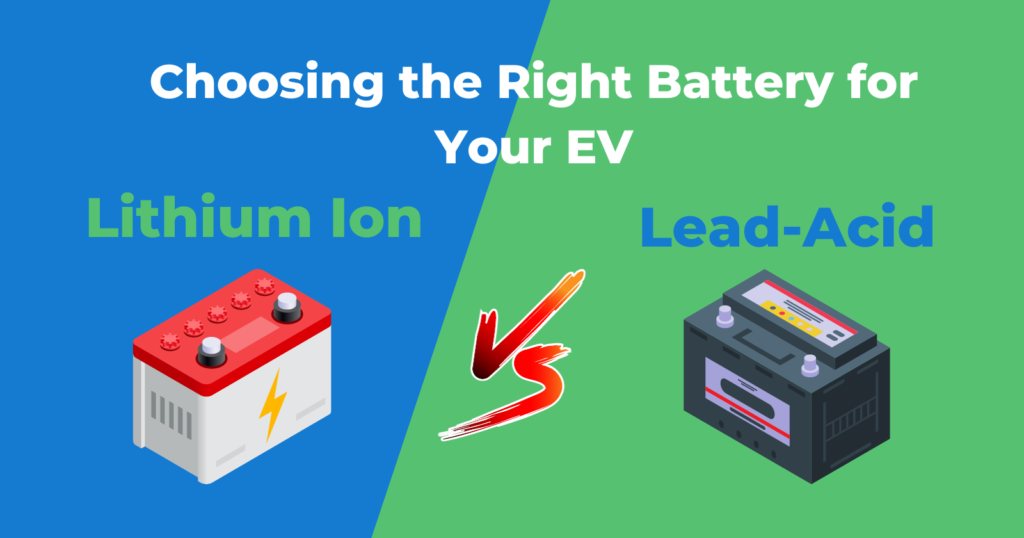Choosing the Right Battery for Your EV: Lithium-Ion Or Lead-Acid
Lithium Ion vs. Lead Acid: Electric vehicles (EVs) have taken the automotive industry by storm, championing eco-friendliness and superior performance. A crucial component responsible for powering these remarkable machines is the choice of battery technology. Among the available options, lithium-ion batteries stand head and shoulders above lead-acid batteries for electric vehicles. Let’s explore the factors that make lithium-ion batteries the undisputed choice.
Lithium Ion vs. Lead Acid: Who Wins the High Energy Density Crown?
Lithium-ion batteries boast a notably higher energy density when compared to lead-acid batteries. This translates to the ability to store more energy in a compact, lightweight package, granting EVs an extended range and enhanced performance.
Efficient Use of Space and Weight
The lightweight and space-efficient nature of lithium-ion batteries allows automakers to optimize their EV designs. This results in improved weight distribution, superior handling, and increased interior space for both passengers and cargo.
Lithium Ion vs. Lead Acid: Rapid Charging
Lithium-ion batteries offer the significant advantage of quick charging. Their fast-charging capabilities simplify the lives of EV drivers, making daily commutes and long journeys a breeze.
Extended Cycle Life
Lithium-ion batteries have a longer cycle life, meaning they can withstand numerous charge and discharge cycles before showing signs of capacity degradation. This durability translates to a lengthier battery lifespan and reduced long-term ownership costs.
Lithium Ion vs. Lead Acid: Minimal Maintenance
Lithium-ion batteries are renowned for being virtually maintenance-free. In contrast, lead-acid batteries require regular upkeep, including topping up electrolyte levels and corrosion checks. The reduced maintenance needs of lithium-ion batteries contribute to a more user-friendly ownership experience.
Eco-Friendly Credentials
Lithium-ion batteries take the lead in environmental friendliness. Containing fewer hazardous materials in comparison to lead-acid batteries, they offer a more sustainable choice. Moreover, their recyclability and reduced environmental footprint make them an eco-conscious option.
Conclusion

While lead-acid batteries may find use in lower-cost EVs and other applications, the modern electric vehicle landscape overwhelmingly favors lithium-ion batteries.
Their superior performance, efficiency, and myriad benefits make lithium-ion batteries the preferred choice. As technology progresses, the ongoing evolution of lithium-ion batteries cements their status as the backbone of electric mobility.

